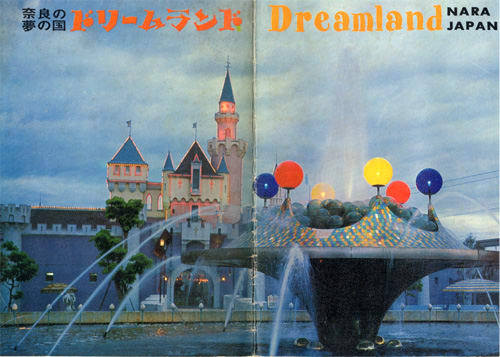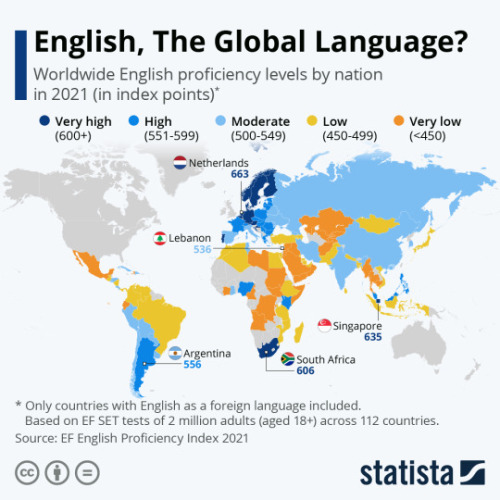
216 posts
Sean Bienvenidos Japonistasarqueolgicos, A Una Nueva Entrega De Actualidad Nipona Una Vez Dijo Esto Pnganse

Sean bienvenidos japonistasarqueológicos, a una nueva entrega de actualidad nipona una vez dijo esto pónganse cómodos que empezamos. - Hoy sábado día 15/04/2023, ha tenido lugar un atentado contra la vida de Fumio Kishida, un joven de 24 años sospechoso de las explosiones causadas en contra del presidente. El puerto estaba envuelto por los gritos de la gente y el incidente ocurrió frente a la cámara pasadas las 11:00 horas del día 15. El lugar es Saikazaki, un puerto en la parte occidental de la ciudad de Wakayama, localizado en la región de Kansai, por suerte salió ileso. - ¿Qué opinan ustedes? Espero que pasen una buena semana y nos vemos en próximas publicaciones.
-
日本の考古学者たちよ、ようこそ、日本の時事問題の新しい回へ。 これだけ言っておけば、あとは楽にしてください、では始めましょう。 - 本日2023年04月15日(土)、大統領に対して引き起こされた爆発事件の容疑者である岸田文雄(24歳)の命が狙われた。 港は人々の悲鳴に包まれ、15日午前11時過ぎにカメラの前で事件は起こった。場所は関西に位置する和歌山市の西部にある港、雑賀崎、幸いにも彼は無傷だった。 - いかがでしょうか?今週も良い一週間をお過ごしください!また、今後の記事でお会いしましょう。
-
Welcome, Japanese archaeologists, to a new installment of Japanese current affairs. Once this has been said, make yourselves comfortable and let's get started. - Today, Saturday 15/04/2023, an attempt was made on the life of Fumio Kishida, a 24 year old suspect in the explosions caused against the president. The port was surrounded by the shouting of people and the incident occurred in front of the camera after 11:00 a.m. on the 15th. The place is Saikazaki, a port in the western part of Wakayama city, located in the Kansai region, luckily he was unharmed. - What do you think? I hope you have a good week and I'll see you in future posts.
-
 bear-pattern-hamster liked this · 3 months ago
bear-pattern-hamster liked this · 3 months ago -
 repera23 liked this · 3 months ago
repera23 liked this · 3 months ago -
 rodolfo9999 liked this · 5 months ago
rodolfo9999 liked this · 5 months ago -
 likealotus liked this · 6 months ago
likealotus liked this · 6 months ago -
 vivencias-del-alma liked this · 6 months ago
vivencias-del-alma liked this · 6 months ago -
 abdalla-23 liked this · 6 months ago
abdalla-23 liked this · 6 months ago -
 ted-blogs-blog liked this · 6 months ago
ted-blogs-blog liked this · 6 months ago -
 hopefulkidshark liked this · 7 months ago
hopefulkidshark liked this · 7 months ago -
 hiromusicarts-blog liked this · 7 months ago
hiromusicarts-blog liked this · 7 months ago -
 famousinuniverse liked this · 7 months ago
famousinuniverse liked this · 7 months ago -
 sicks93 liked this · 7 months ago
sicks93 liked this · 7 months ago
More Posts from Noticiasarquelogicasjaponesas





Sean bienvenidos Japonistasarqueologíacos, a una nueva publicación síntesis, del país del Sol naciente, una vez dicho esto póngase cómodos que empezamos. - Vamos a hablar de la batalla de Toba-Fushimi 27 de Enero 1868-31 Enero 1868, que forma parte de las Guerras Boshin, de carácter civil. - Está batalla la vamos a ver a través del arte que fue realizado por Tsukioka Yoshitoshi, perteneciente al Ukio-e. ¿Conocían la batalla? - Espero que os guste y nos vemos en próximas publicaciones, que pasen una buena semana. - 日出ずる国から、日本の考古学へようこそ、新しい要約出版物へ。 - 民事上の戊辰戦争の一部である、1868年1月27日から1868年1月31日にかけて行われた鳥羽・伏見の戦いについてお話します。 - 浮世絵に属する月岡芳年の作品を通して、この戦いを見てみます。 彼らはその戦いを知っていたのか? - 気に入っていただければ幸いです。今後の投稿でお会いしましょう。良い一週間をお過ごしください。 Welcome to Japanese archaeology, to a new summary publication, from the country of the rising sun. Having said that, make yourself comfortable and let's get started. - We are going to talk about the battle of Toba-Fushimi January 27, 1868-January 31, 1868, which is part of the Boshin Wars, of a civil nature. - We are going to see this battle through the art that was made by Tsukioka Yoshitoshi, belonging to Ukio-e. Did they know the battle? - I hope you like it and see you in future posts, have a good week.


権力者の冠をデザイン? 天皇陵出土説もある謎の石枕の正体に迫る.
Designing the crown of a powerful person? Uncovering the true nature of the mysterious stone pillow that is said to have been excavated from the Emperor's tomb.




Sean bienvenidos, japonistasarqueologicos a una nueva entrega en la que hablaremos sobre el asunto de Japón y las aguas residuales al mar una vez dicho esto pongan cómodos que empezamos. - Hace poco están en todos los medios de comunicación del mundo, que Japón tiene luz verde por la ONU para verter agua tratada en la planta nuclear de Fukushima en el accidente acontecido en 2011. - Hay más de 1.000 tanques y 1,34 millones de toneladas, posiblemente al 98% de la capacidad, además se está analizando el agua de mar y los alrededores de la central nuclear, actualmente se está analizando la concentración de tritio, los resultados estarán disponibles el día 25 por la tarde, previamente se habían tomado muestras de agua de los depósitos dando como resultado que era seguro, pero posiblemente tendrían que haber esperado más tiempo. - La población japonesa, se manifiesta al respecto porque esto va a generar problemas a largo plazo a la economía mundial. China suspende todas las importaciones de productos del mar japoneses, no se iba a quedar de brazos cruzados ¿Qué opinan ustedes al respecto? - Espero que os haya gustado y nos vemos en próximas publicaciones que pasen una buena semana.
考古学の日本研究者の皆様、ようこそ!今回は、日本と海への汚水問題についてお話しします。
最近、日本が2011年の福島原発事故の処理水を海洋投棄することを国連から許可されたことが世界中のメディアを賑わせている。
タンクは1000基以上、134万トンあり、おそらく容量の98%であろう。また、海水と原発周辺は分析中で、現在はトリチウムの濃度が分析されており、25日の午後に結果が出る予定である。以前は貯水池から水を採取し、安全であるという結果を出していたが、おそらくもっと待つべきだったのだろう。
日本国民が抗議しているのは、これが世界経済に長期的な問題を引き起こすからである。中国が日本産水産物の輸入を全面的に停止したのだから、黙って見過ごすわけがない。 これについてどう思う?
お気に召していただけたなら幸いである。 それではまた、良い一週間を。
Welcome, japonistasarqueologicos to a new installment in which we will talk about the issue of Japan and sewage into the sea, that said, make yourselves comfortable and let's get started. - It has recently been all over the world's media that Japan has been given the green light by the UN to dump treated water into the Fukushima nuclear power plant from the 2011 accident. - There are more than 1,000 tanks and 1.34 million tons, possibly at 98% of capacity, also the sea water and the surroundings of the nuclear plant are being analysed, currently the concentration of tritium is being analysed, the results will be available on the 25th in the afternoon, previously water samples had been taken from the reservoirs giving as a result that it was safe, but possibly they should have waited longer. - The Japanese people are protesting because this is going to create long-term problems for the world economy. China suspends all imports of Japanese seafood, they are not going to sit back and do nothing. What do you think about this? - I hope you liked it and I'll see you in future posts. Have a good week.







Sean bienvenidos japonistasarqueológicos, a una nueva entrega, esta ocasión nos trasladamos al antiguo solar donde se localizaba el antiguo parque de atracciones Nara dreamland. - Esperó que os guste y nos vemos en próximas publicaciones, que pasen una buena semana.¿Lo conocían? - 今回は、旧奈良ドリームランド遊園地があった場所に移動して、新たな回をお届けします。 - あなたがそれを好きで、今後の出版物でお会いすることを望みます、良い一週間を過ごしてください、あなたはそれを知っていましたか? - Welcome to a new installment, this time we move to the old site where the former Nara dreamland amusement park was located. - I hope you like it and see you in future publications, have a good week, did you know it?



Parte 2:Razones por las que a los japoneses jamás se le va a dar bien el inglés: Sean bienvenidos, japonistasarqueológicos, a una nueva entrega, en esta ocasión hablamos del inglés en Japón, una vez dicho esto pónganse cómodos qué empezamos. - Por la que a los japoneses les cuesta el inglés más de una te sorprenderá, los japoneses para poder aprender inglés desde cero les lleva alrededor de 500 horas alcanzar el nivel principiante; sin embargo, se necesitan unas 250 horas para aprender coreano o indonesio al mismo nivel principiante. Una de las razones por las que los japoneses no son buenos en inglés es debido a la pronunciación, esto es un hecho. - La estructura gramatical del inglés es: SVO (sujeto-verbo-objeto) donde el verbo va primero, mientras que en japonés, SOV (Sujeto-Objeto-Verbo) donde el verbo va al final. Además, la estructura de las oraciones difiere entre el inglés y el japonés, el inglés es muy estricto en cuanto al orden de las palabras. En japonés utilizamos unas 120 palabras en un minuto de conversación normal. El inglés emplea aproximadamente 1,5 veces más palabras, razón por la cual los japoneses sienten que hablan inglés más rápido. Por ejemplo, la palabra japonesa “personalidad” tiene tres fonemas. Cuando se trata de inglés, necesitamos cinco fonemas: pa/so/na/li/ti, y para transmitir la misma información, necesitamos hablar más rápido. La razón por la que a los japoneses les resulta difícil escuchar y hablar inglés es probablemente porque se les exige que usen habilidades que normalmente no emplean. パート2:日本人が決して英語が得意にならない理由:日本の考古学者たちよ、新しい回へようこそ!今回は日本の英語について話す。 - なぜ日本人は英語が苦手なのか?日本人がゼロから英語を学んで初級レベルに達するには約500時間かかるが、韓国語やインドネシア語を学んで同じ初級レベルに達するには約250時間かかる。日本人が英語を苦手とする理由のひとつに発音があるが、これは事実である。 - 英語の文法構造はSVO(Subject-Verb-Object)で動詞が先に来るのに対し、日本語はSOV(Subject-Object-Verb)で動詞が最後に来る。また、文の構造も英語と日本語では異なり、英語は語順に非常に厳しい。日本語の場合、通常の会話で1分間に使う単語は約120語。英語はその約1.5倍の単語を使うので、日本人は英語を話すのが早いと感じるのです。例えば、日本語の「パーソナリティ」という単語には3つの音素がある。それが英語になると、パ/ソ/ナ/リ/ティの5つの音素が必要になり、同じ情報を伝えるためには、より速く話す必要がある。日本人が英語を聞くのも話すのも難しいと感じるのは、普段使わない能力を要求されるからだろう。 - 今後の記事でお会いできることを楽しみにしています。 Part 2: Reasons why the Japanese will never be good at English: Welcome, Japanese archaeologists, to a new instalment, this time we are talking about English in Japan, so make yourselves comfortable and let's get started. - Why the Japanese have a hard time with English more than one will surprise you, it takes the Japanese around 500 hours to learn English from scratch to reach beginner level; however, it takes around 250 hours to learn Korean or Indonesian to the same beginner level. One of the reasons why Japanese people are not good at English is because of pronunciation, this is a fact. - The grammatical structure of English is: SVO (Subject-Verb-Object) where the verb comes first, while in Japanese, SOV (Subject-Object-Verb) where the verb comes last. Also, sentence structure differs between English and Japanese, English is very strict about word order. In Japanese we use about 120 words in one minute of normal conversation. English uses about 1.5 times as many words, which is why Japanese people feel they speak English faster. For example, the Japanese word "personality" has three phonemes. When it comes to English, we need five phonemes: pa/so/na/li/ti, and to convey the same information, we need to speak faster. The reason why Japanese people find it difficult to listen to and speak English is probably because they are required to use skills they do not normally use. - I hope you like it and see you in future posts, have a good week.